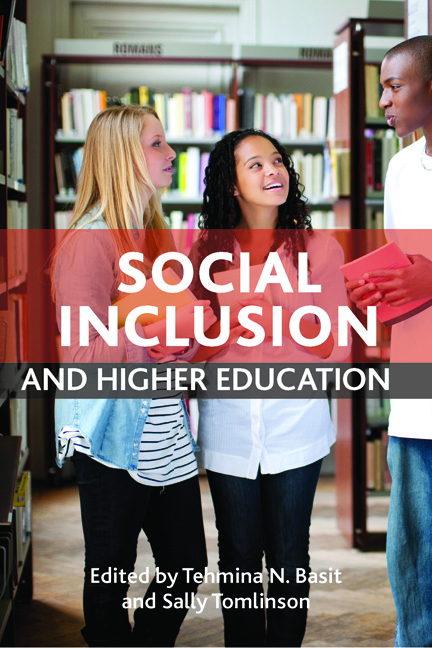six - Equity, diversity and feminist educational research: enhancing the emerging field of pedagogical studies in higher education for social inclusion
Published online by Cambridge University Press: 01 September 2022
Summary
Introduction
The aim of this chapter is to consider educational research on social and gender equity from a feminist perspective and to question the recent debates about diverse forms of social inclusion or exclusion. In other words, my definition of social inclusion is about how to include disadvantaged and previously excluded social groups, such as women and those from working-class family backgrounds, in higher education policies, pedagogies and practices. My interest in the challenging debates about different forms of social equity or the broader notion of equality of educational opportunity in terms of family social class backgrounds and/or gender is long-standing, as I will show later.
My recent concern has been twofold: first, to stimulate interest in innovative approaches to education, through pedagogical research, to contribute to debates within higher education about developing teaching and learning methods to enhance social and gender equity and forms of social inclusion in terms of class, gender, family and ethnicity. This stands in contrast to social exclusivity linked to increasing forms of social stratification, and the lack of social mobility through and in higher education.
Second, David Willetts, Minister for Higher Education in the Coalition government reignited debate about these very issues of social inclusion or exclusion in a talk discussed in the media (GEA, 2011). It is claimed that he argued that ‘Feminism trumps egalitarianism’ (GEA, 2011). The core of his argument was about social mobility and the effects that feminism was having: namely, that social mobility had stalled and that jobs for working-class men had been stymied through feminism. Given that middle-class women now attended universities and, through forms of assortative mating, married middle-class men who also had well-paying jobs, they had taken jobs such that they were denying opportunities for working-class men to participate in the labour market. In other words, Willetts launched an attack on feminist research and practices around innovative forms of social inclusion through higher education.
A personal approach to social inclusion from a feminist perspective
As a feminist social scientist, I have been involved in university education throughout my career and I wish to offer some thoughts about what I have learned about policies for equity and social inclusion, and pedagogical practices, based upon my own experiences through social and educational research and also feminist activism.
- Type
- Chapter
- Information
- Social Inclusion and Higher Education , pp. 129 - 148Publisher: Bristol University PressPrint publication year: 2012

